Here's How To Tell Ethical Non-Monogamy Is Right For You

"Hearst Magazines and Yahoo may earn commission or revenue on some items through these links."
Picture this: You’re young and diving into the world of dating for the first time. In a world of infinite possibilities, you can’t imagine being tied down. Dating multiple people, and experiencing different kinds of relationships, seems like the obvious choice. Or maybe you’re not-so-young, and you’ve just ended a decades-long relationship. You know what it’s like to be deeply committed to one person, and you don’t want to fall right back into that pattern, especially when you’re getting to know yourself and your desires for the first time in a while. Whatever your situation, there are many reasons why ethical non-monogamy, or ENM for short, might be appealing.
Although monogamy may seem like the norm, a significant number of people are interested in some form of non-monogamy, or have already tried it. In fact, “one-third of Americans (34 percent) describe their ideal relationship as something other than complete monogamy,” according to a February 2023 YouGov poll. More specifically, “the number of people in the United States who would like to engage in polyamorous relationships is 1 in 6—just about the same as the number of Americans who have a cat,” found The Kinsey Institute. In short, non-monogamy isn’t a rare relationship style at all.
So what exactly is ENM? “Ethical non-monogamy is an umbrella term for any variation of relationship styles that involves romantic or sexual relationships with more than one person that is consented to by those involved,” says Liz Powell, PhD, a licensed psychologist and author of Building Open Relationships.
If you’re curious about trying out this relationship and dating style, ahead, relationship and sex experts explain the different types of ethical non-monogamy, how to know if ENM right for you, how to practice it (ethically, of course!).
What is ethical non-monogamy?
Because ENM is often defined in relation to monogamy, let’s start there. The dictionary definition of monogamy is fairly simple. Basically, it comes down to having a sexual and/or intimate relationship with only one partner at a time. Ethical non-monogamy, on the contrary, involves having sexual and/or intimate relationships with more than one partner.
“Ethical” is in the title for a reason, as it differentiates ethical non-monogamy from cheating on a partner with whom you’ve agreed to be monogamous. “ENM is different from cheating because in ENM, all parties involved should be acting with consent and clearly communicating knowledge of other connections happening,” says relationship therapist Meg Jeske, LPC. “Those are the primary pieces that are missing when someone is cheating: consent and clear, transparent communication.”
There are various reasons why people choose ethical non-monogamy as opposed to monogamy, including:
Freedom to explore one’s sexuality
Ease of exploring different kinks and fetishes
An inclination or desire to love and/or be in relationships with multiple people
A desire for independence
“A mismatch of sexual desire or identities (i.e., if someone is asexual or greysexual and their partner is more oriented toward sex),” per Jeske.
Being in a long-distance relationship or partnership where one person travels a lot, and wanting to explore connections in your immediate area, says Jeske.
What is the difference between ethical non-monogamy and polyamory?
Labels can be tricky, as everyone uses them differently. For that reason, when negotiating dating or relationship boundaries, it’s important to define specific terms for you and your partners to ensure everyone is on the same page. “Labels are helpful shorthand, but in reality, there is no overlord-arbiter-of-truth who decides what a label means,” says Joli Hamilton, PhD, a certified sexuality educator and host of the podcast Playing With Fire.
But in general, polyamory is a type of ethically non-monogamous relationship. Because ENM is an umbrella term, as Powell explained, it includes a variety of relationship styles, including casual dating, swinging, and polyamory, to name a few (more on the different types of ENM later).
“Typically, I hear clients use the label ‘polyamorous’ to describe themselves if they are intentionally creating multidimensional love-based relationships,” says Hamilton. “People might feel more comfortable using the term ‘ethical non-monogamy’ if they are not open to forming long-term relationships, or if they are focused on sexual connections rather than emotional bonds.”
What are the different types of ethically non-monogamous relationships?
Each relationship is as unique as the people in it, but there are some general categories that many ENM relationships fall into. Per Powell, these include:
Casual dating: Many folks “date around” before settling down, which may involve dating multiple people at once.
Monogamish: “Coined by Dan Savage, [monogamish describes] a generally monogamous relationship that allows for the possibility of occasional outside sexual contact. That can mean either accepting that 100-percent monogamy is unlikely over [the course of a] relationship or [granting] occasional explicit permission for outside sexual relations,” says Powell.
Swinging: “Swinging is a form of non-monogamy that is generally practiced at the couple level, where couples interact with other couples (or occasionally singles) and swap or have group experiences,” says Powell. “Generally, swingers do not have multiple romantic connections and are romantically monogamous with their core partner, but are sexually non-monogamous.” It’s worth noting that “swinging has its own rich subculture with its own cultural norms and clubs in most major cities around the world,” according to Powell.
Open relationship: “Open relationship” is a term that can mean many things to many different people, “but tends to lie somewhere between swinging and polyamory,” says Powell. “There is generally some openness to multiple romantic [or sexual] connections, but there may be limitations on how deep those relationships can become.”
Hierarchical polyamory: Hierarchical polyamory is a version of polyamory in which certain relationships and partners are given higher priority and privileges over others, says Powell. “Often, this is a couple who consider each other ‘primary’ [partners] and get a say in what happens in each others’ relationships with other people in a way that those ‘secondary’ partners do not.” Additionally, there are generally significant limitations on how deep or involved secondary relationships can become in order to protect that primary partnership, Powell adds. “One example of how this power structure shows up is through the use of ‘veto,’ where a primary partner can veto someone their primary partner is dating.”
Closed polyamory or polyfidelity: This is “a model of polyamory where a group of partners agree to not date any other people outside of that group,” per Powell. “This is most commonly a closed triad or quad but can be any number of people.”
Non-hierarchical polyamory: A style of polyamory where every relationship is prioritized equally, says Powell. “That doesn’t mean that every relationship is exactly the same,” they clarify. “Just that there are no fixed power structures.”
Solo polyamory: This is “a version of polyamory practiced by people who do not want to follow the relationship escalator,” says Powell. ICYDK, the relationship escalator describes the traditional steps serious romantic relationships should follow as determined by one’s culture or society. In Western culture, this escalator typically looks like: courtship, commitment, moving in together, getting engaged, marriage, buying a home, and having kids. The concept was coined by journalist and blogger of Solo Poly Amy Gahran. Those who practice solo polyamory “may not want to cohabitate, get married, entwine finances, or have children with partners,” Powell says. “Instead, they want deep, meaningful, long-term relationships that don’t involve a sacrifice of individual identity.”
Relationship anarchy: This is “a model of relating that does not see ‘friends’ and ‘partners’ as different categories but instead allows each relationship to find its own way of being and existing,” says Powell. “This may include multiple romantic and sexual relationships or may not.”
How do I know if ethical non-monogamy is right for me?
Some people feel drawn to forms of non-monogamy as a result of their early dating adventures, and others come to it later in life for a variety of reasons. Like many things in life, one of the best ways to find out if ethical non-monogamy is right for you is to try it! But if jumping straight into ENM seems like too much, too fast, relationship coach and host of Making Polyamory Work Libby Sinback recommends seeking out resources first. “There are a lot of them these days, including books, podcasts, articles, and courses,” she says. A few podcasts the experts recommend include: Playing With Fire, Making Polyamory Work, Multiamory, and Polyamory Weekly.
The Ethical Slut, Third Edition: A Practical Guide to Polyamory, Open Relationships, and Other Freedoms in Sex and Love
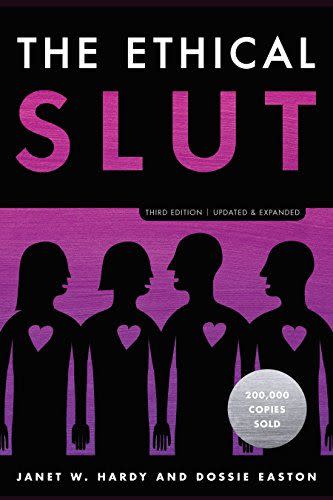
The Ethical Slut, Third Edition: A Practical Guide to Polyamory, Open Relationships, and Other Freedoms in Sex and Love
amazon.com
$15.06
Building Open Relationships: Your hands on guide to swinging, polyamory, and beyond!
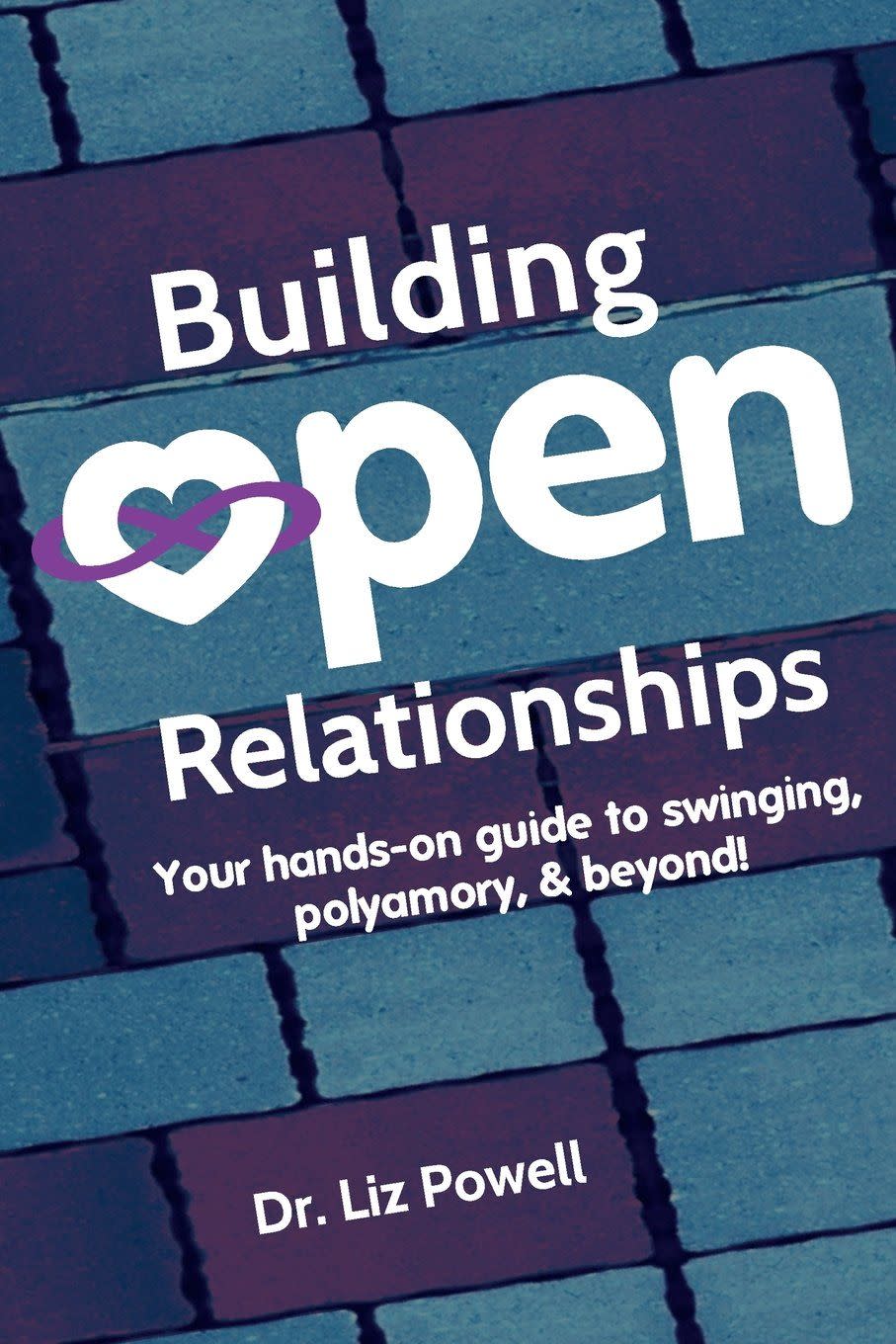
Building Open Relationships: Your hands on guide to swinging, polyamory, and beyond!
amazon.com
$25.00
Polysecure: Attachment, Trauma and Consensual Nonmonogamy
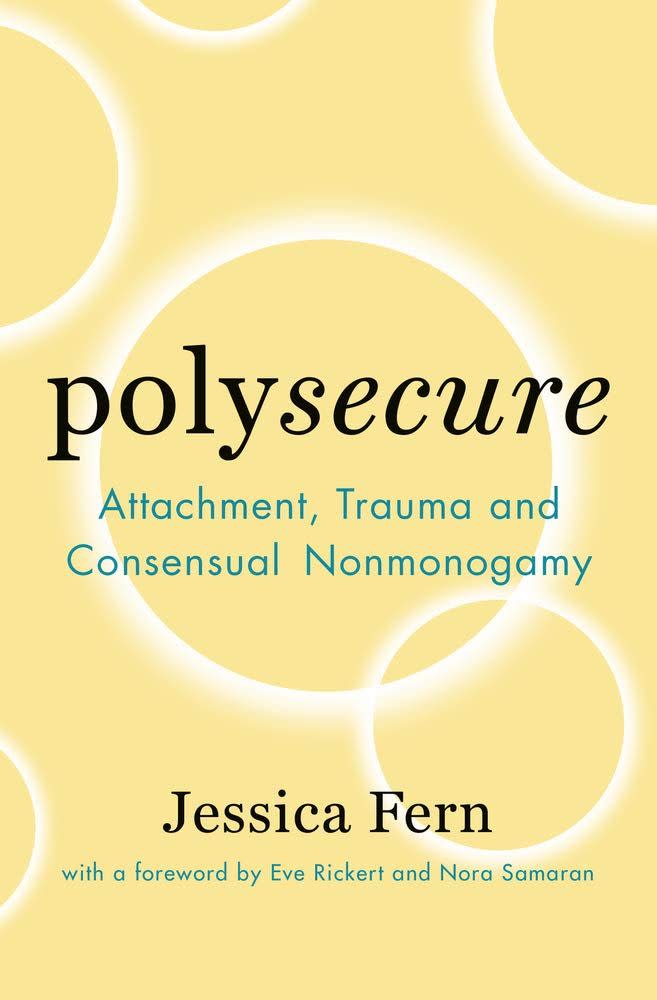
Polysecure: Attachment, Trauma and Consensual Nonmonogamy
amazon.com
$15.29
Open Deeply: A Guide to Building Conscious, Compassionate Open Relationships
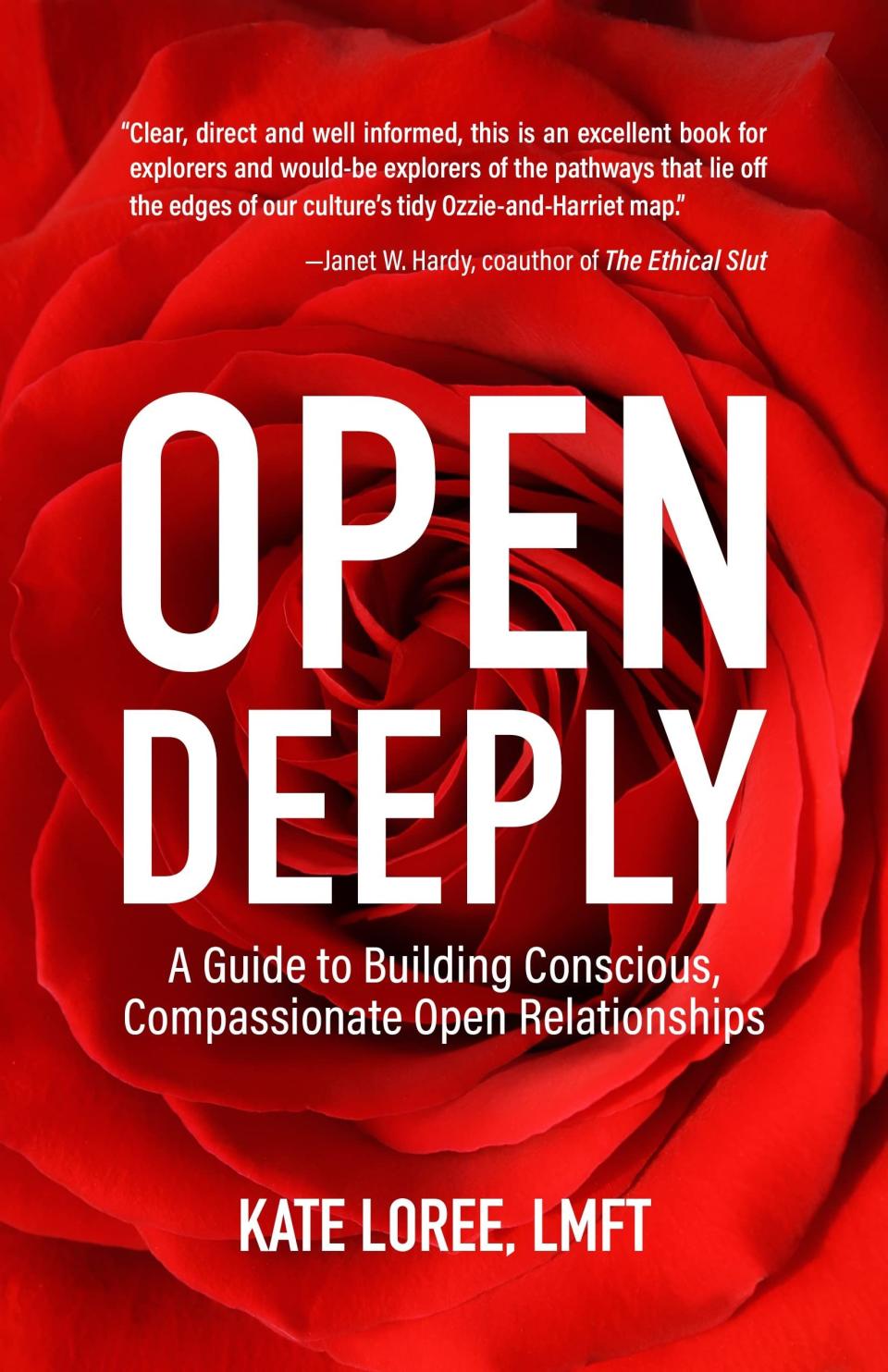
Open Deeply: A Guide to Building Conscious, Compassionate Open Relationships
amazon.com
$16.95
Cultivating Connection: a practical guide for personal and relationship growth in ethical non-monogamy
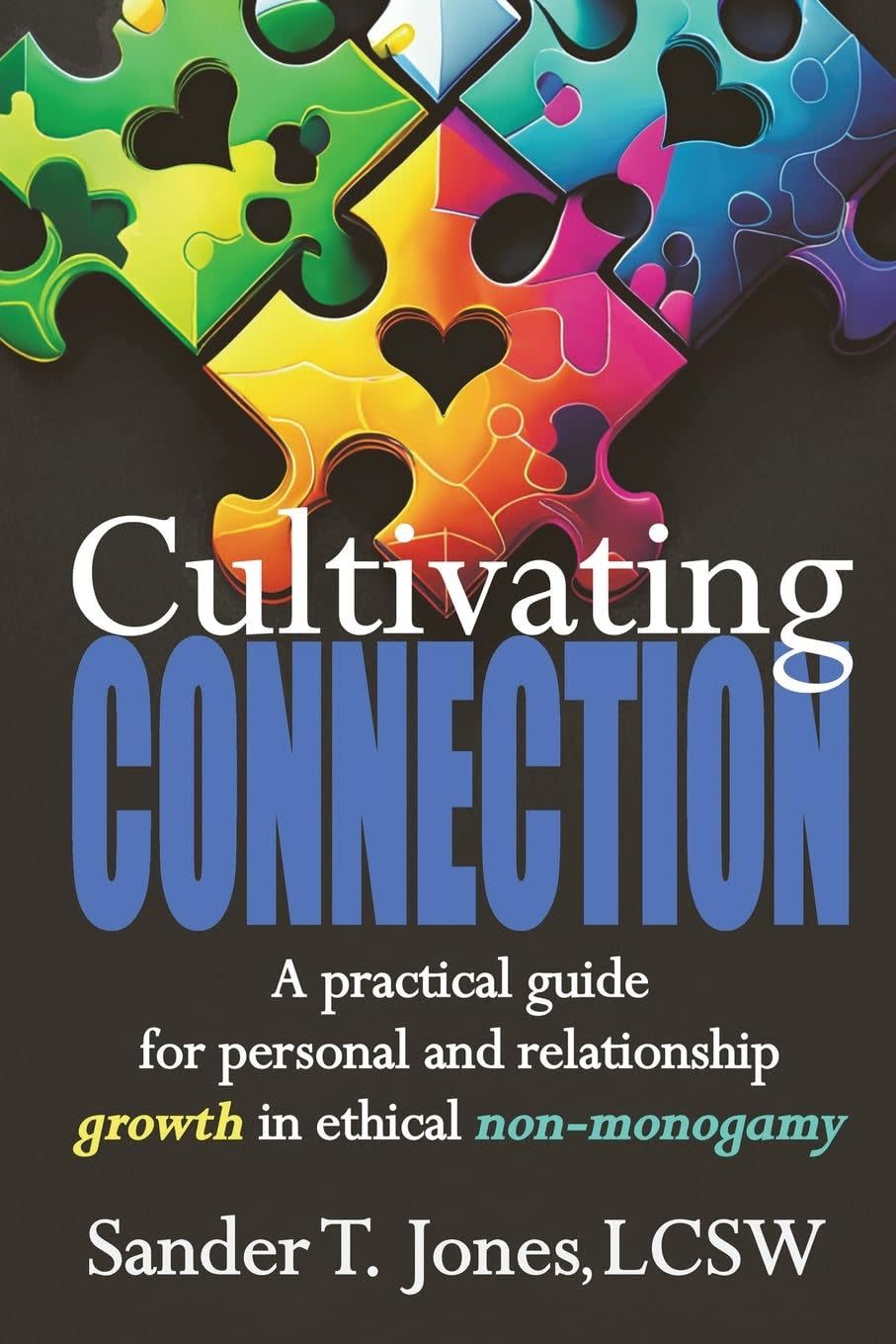
Cultivating Connection: a practical guide for personal and relationship growth in ethical non-monogamy
amazon.com
$21.99
Love's Not Color Blind: Race and Representation in Polyamorous and Other Alternative Communities
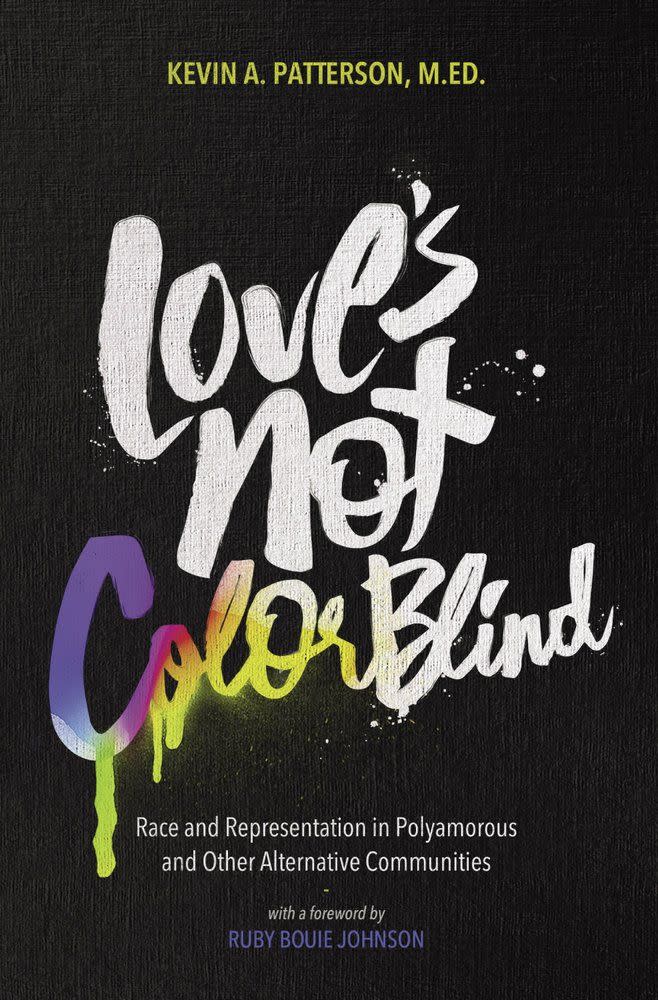
Love's Not Color Blind: Race and Representation in Polyamorous and Other Alternative Communities
amazon.com
$15.79
Redefining Our Relationships: Guidelines For Responsible Open Relationships
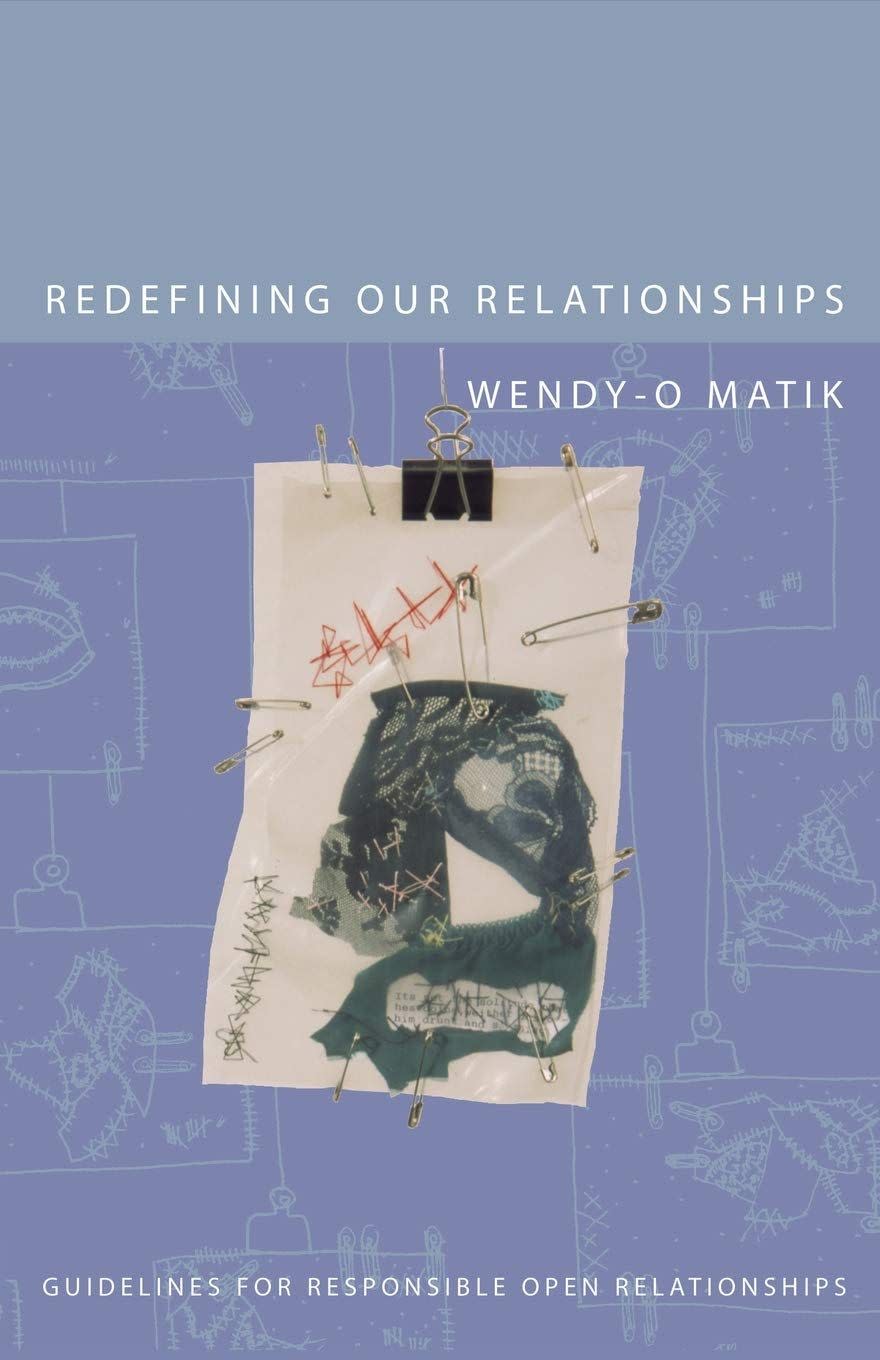
Redefining Our Relationships: Guidelines For Responsible Open Relationships
amazon.com
$13.70
Stepping Off the Relationship Escalator: Uncommon Love and Life
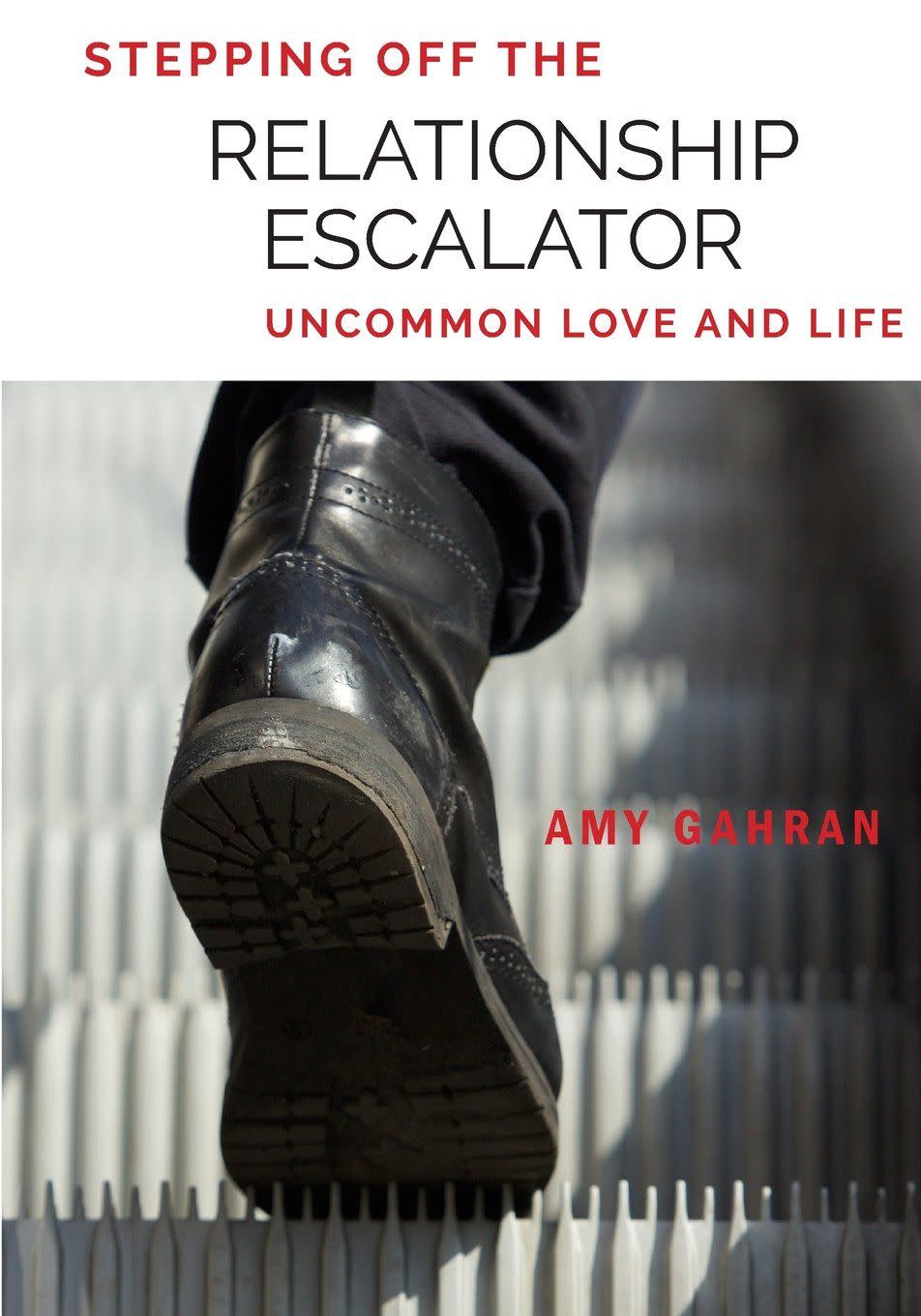
Stepping Off the Relationship Escalator: Uncommon Love and Life
amazon.com
$22.87
Beyond exploring these resources, it can be useful to seek out people who practice ENM in their own lives, says Sinback. Attending a meet-up, whether online or in person, and cultivating connections with those who have their own personal experiences to share can be very helpful and offer a supportive environment, she notes.
Additionally, you might consider doing some soul-searching. “Spend some time reflecting on your values, and [your goals for] romantic and sexual relationships,” Sinback says. “Reflecting on this and the role that those types of relationships play in your life can help you figure out if non-monogamy is truly aligned with who you want to be and how you want to live.”
Before exploring with others, ask yourself these questions, suggests Hamilton:
Are you willing to question your assumptions?
Can you self-regulate when you feel triggered?
Do you have the bandwidth to read and listen to relationship-learning resources?
Are you willing to be curious about what works for the people you are relating with?
Checking off these boxes will make it easier for you to explore ENM joyfully, says Hamilton. “If you have a solid sense of why you are exploring and you’re willing to invest energy in the process of experimenting, you may find that there is a style of ENM that works great for you.”
Once you are ready to explore, there are the apps, of course. Pretty much any dating app can work for ENM these days, as long as you choose the appropriate profile settings and make it clear in your bio that you’re non-monogamous. That said, dating apps Feeld and #Open are favorites among the ethical non-monogamous crowd because of their open-relationship-friendly features, such as the ability to link to a partner’s profile.
How do I practice ethical non-monogamy?
1. Get ready for a paradigm shift.
“If you’re already in a [monogamous] relationship and thinking about exploring ENM in the context of your current relationship, it’s important to know that going from monogamy to ENM is not a process of small tweaks but instead a major restructuring of the entirety of your relationship,” says Powell. “Part of being successful in ENM is unpacking the assumptions and norms of heteronormative, mono-normative culture.” For example, the assumption that each person has a soulmate, or that someone meets “The One” and settles down, happily ever after.
2. Familiarize yourself with relational tools and practice them.
“When opening an existing relationship, folks will often try to create agreements or rules that are designed to help alleviate their fears, anxieties, and insecurities,” says Powell. “[However,] these kinds of agreements and rules don’t tend to work out well in the long run as they are structural solutions to emotional problems.” Instead, think about what you would want in certain situations and figure out what emotional or relational work you need to do to get there, they advise. For example, if you want to feel secure enough in your relationship to manage jealousy and be happy for your partner’s happiness with others, you might familiarize yourself with the practice of compersion.
3. Plan for dysregulation.
“Change, even desired change, is dysregulating to your nervous system,” Hamilton says. As a result, she suggests learning some nervous system regulation techniques, such as simple breath work and gentle movement (i.e., walking or dancing) and practicing them daily, so when you experience relationship bumps, you have tools for re-centering yourself.
4. Remember your self-worth.
“So much of the drama of ENM comes down to [people’s] fear that if a partner turns their attention to someone else, it must mean [they] are lacking in some way,” says Hamilton. “[That's why] developing a strong sense of self-worth is invaluable.” Granted, this can be tough because in the monogamous paradigm, many tie their self-esteem directly to being someone’s special person, Hamilton adds.
So, if you struggle with jealousy or not feeling like you’re enough, double down on your self-worth affirmations, perhaps bring your concerns to your individual mental health counselor, and be sure to pour into your friendships, says Hamilton. And of course, you can always ask your partner for reassurance when you need it.
Meet the Experts:
Liz Powell, PhD, is a licensed psychologist, sex therapist, and author of Building Open Relationships.
Meg Jeske, LPC, is a relationship therapist with a private practice in Portland, OR.
Joli Hamilton, PhD, MHC, is a certified sexuality educator and host of the podcast Playing With Fire.
Libby Sinback is a relationship coach, educator, and host of the podcast Making Polyamory Work.
You Might Also Like

